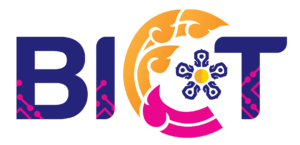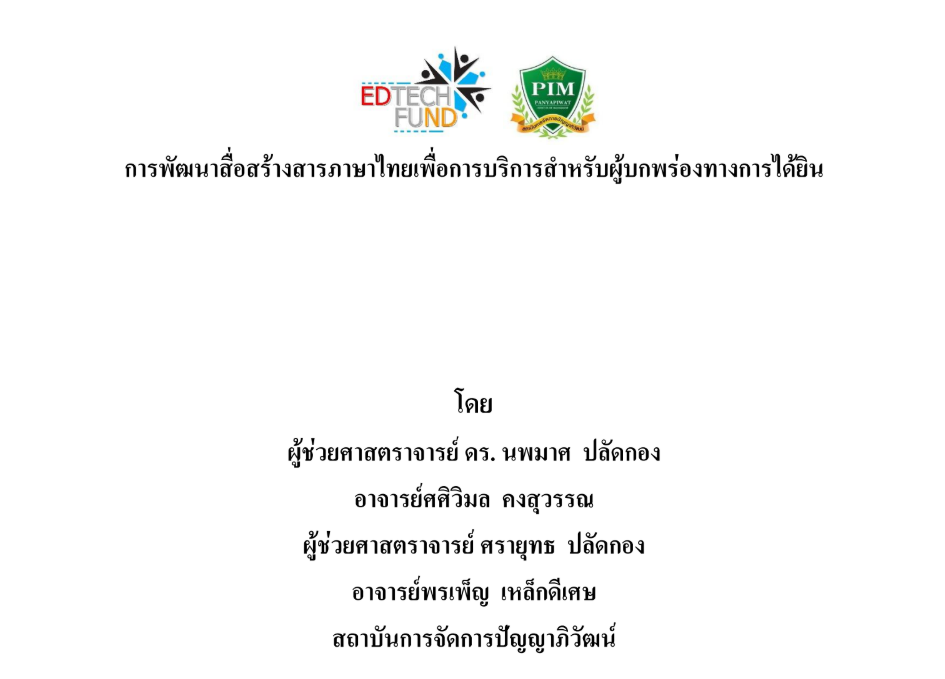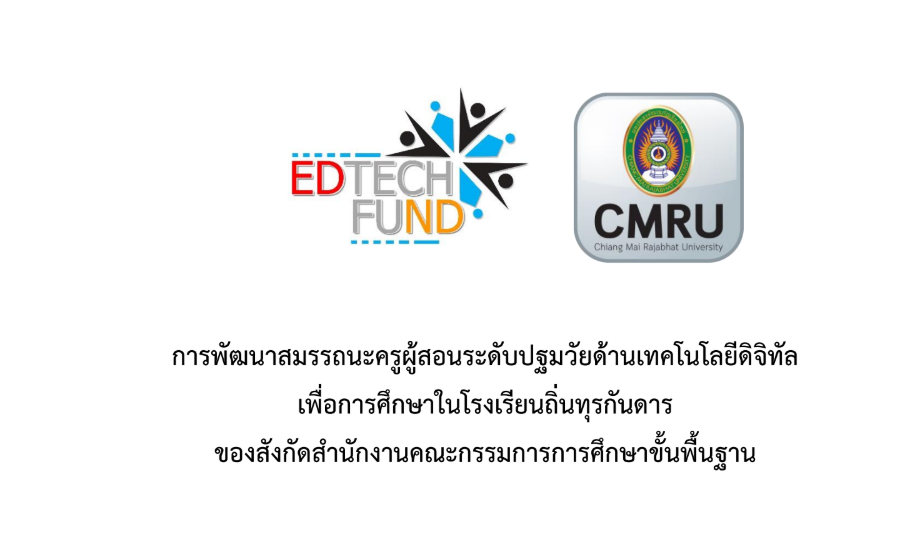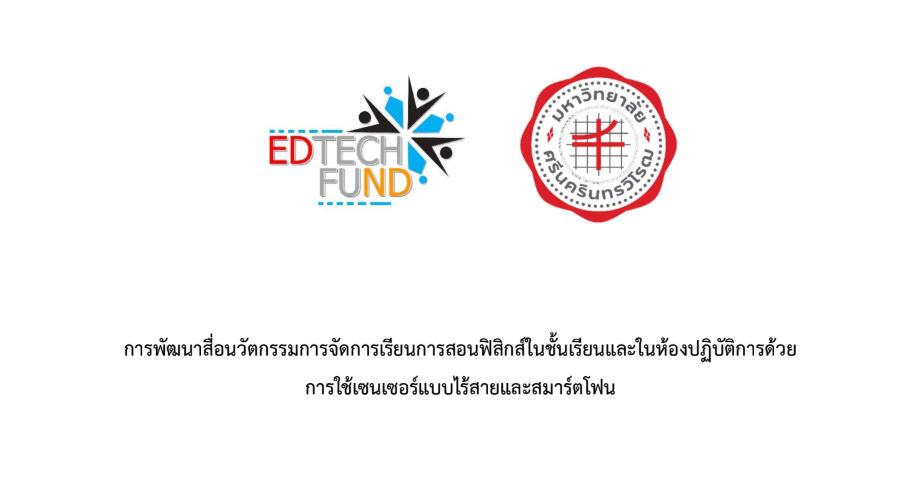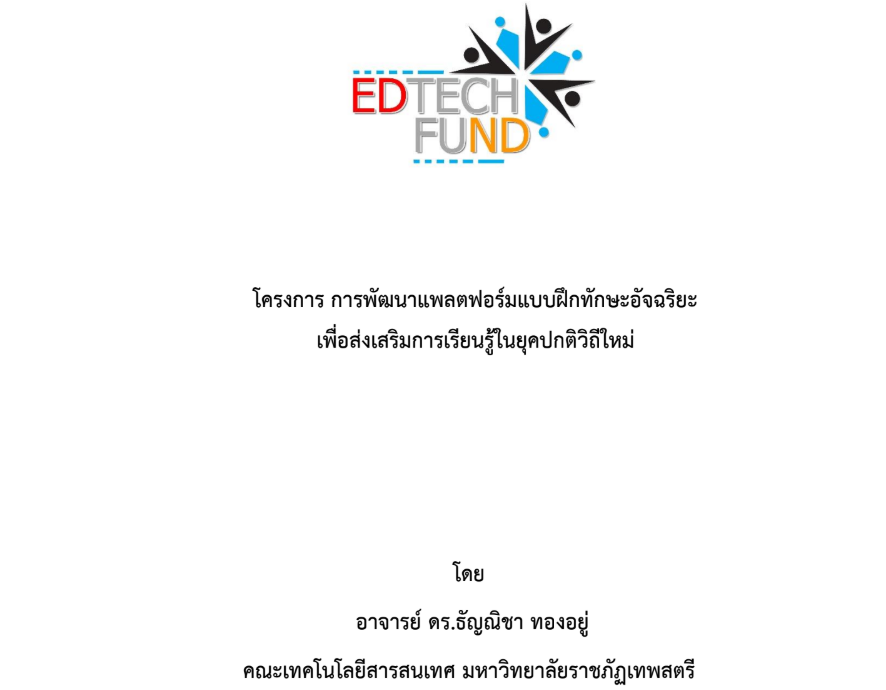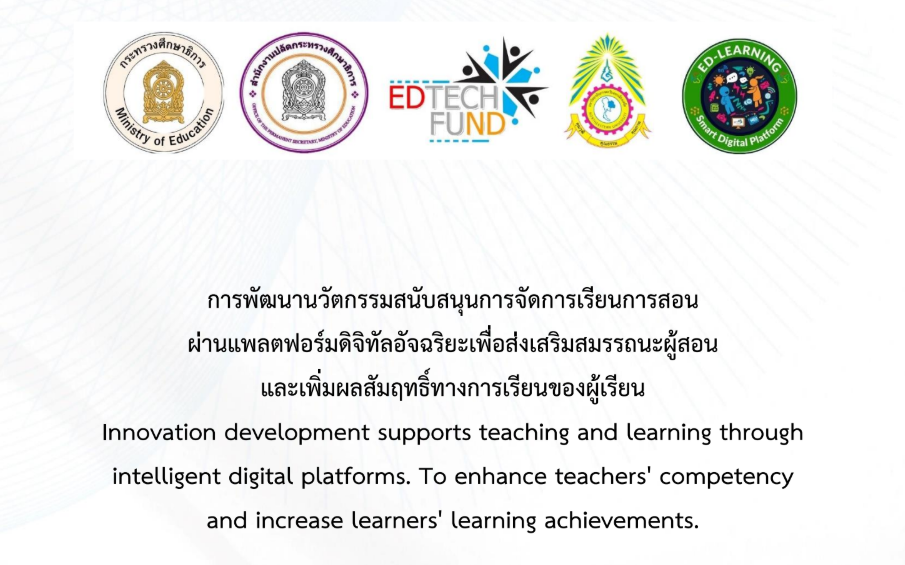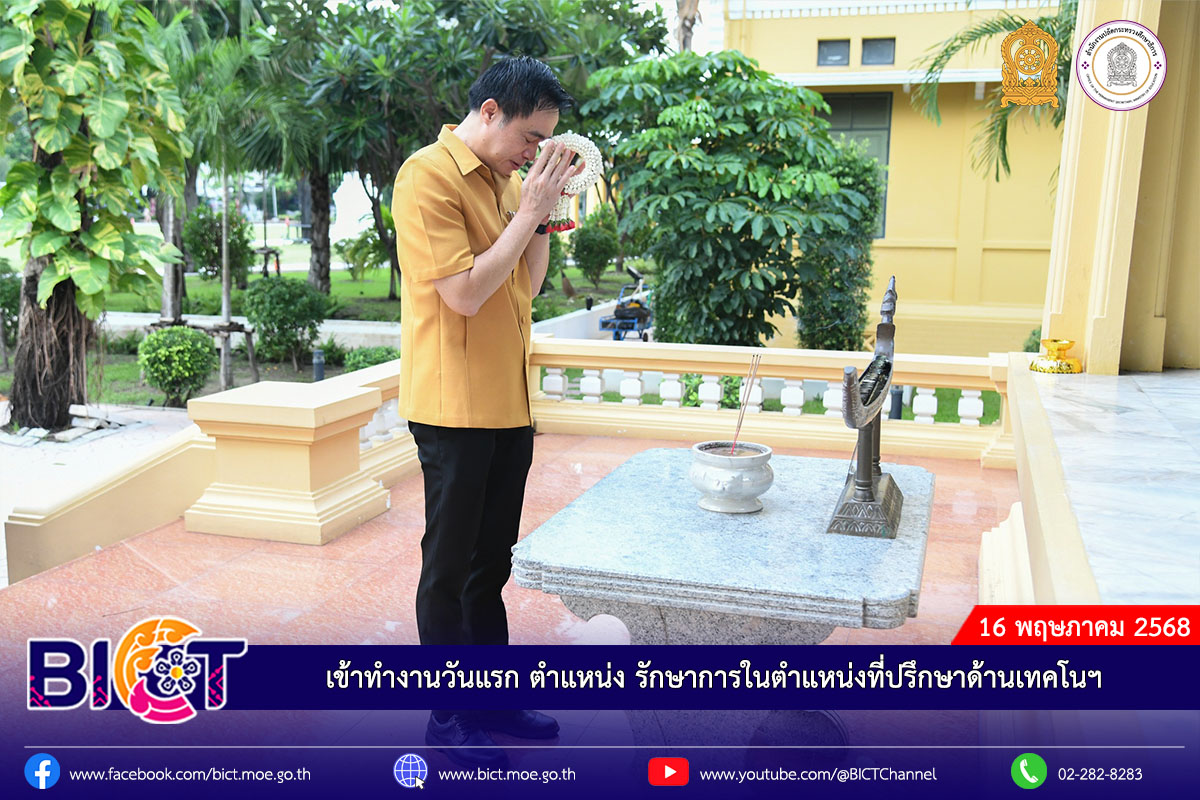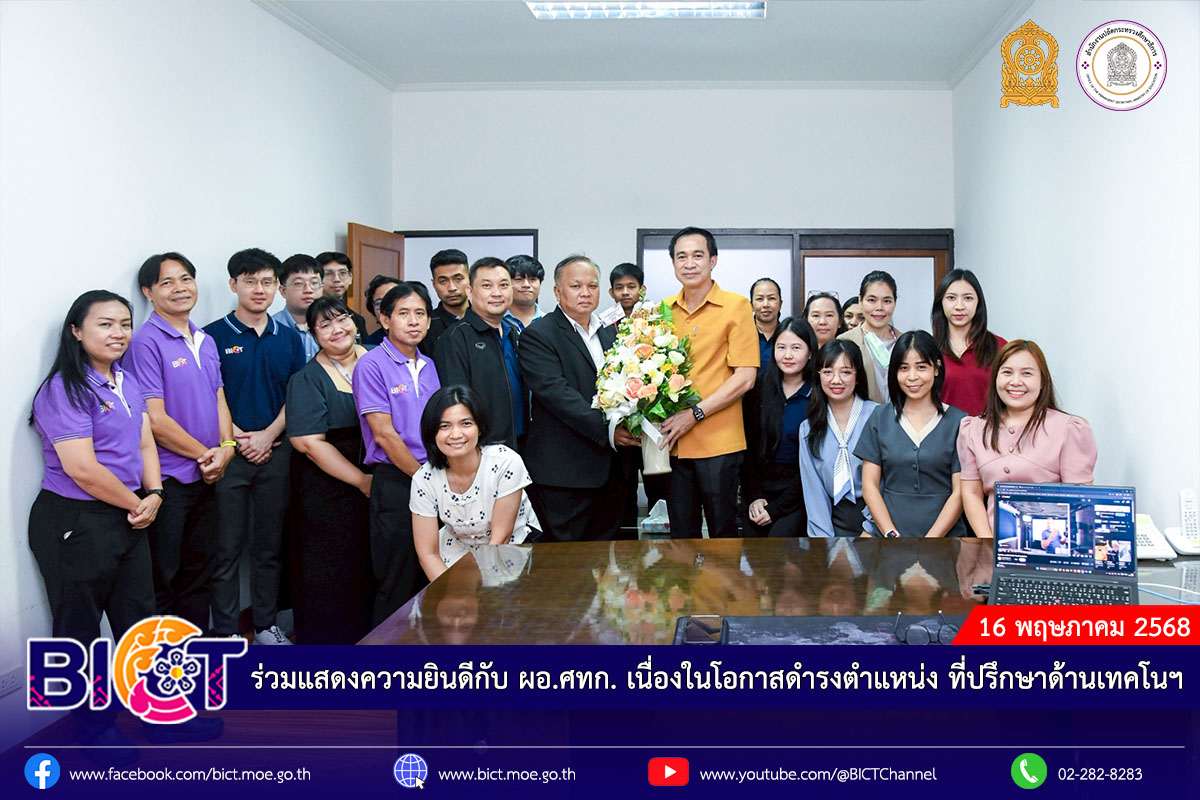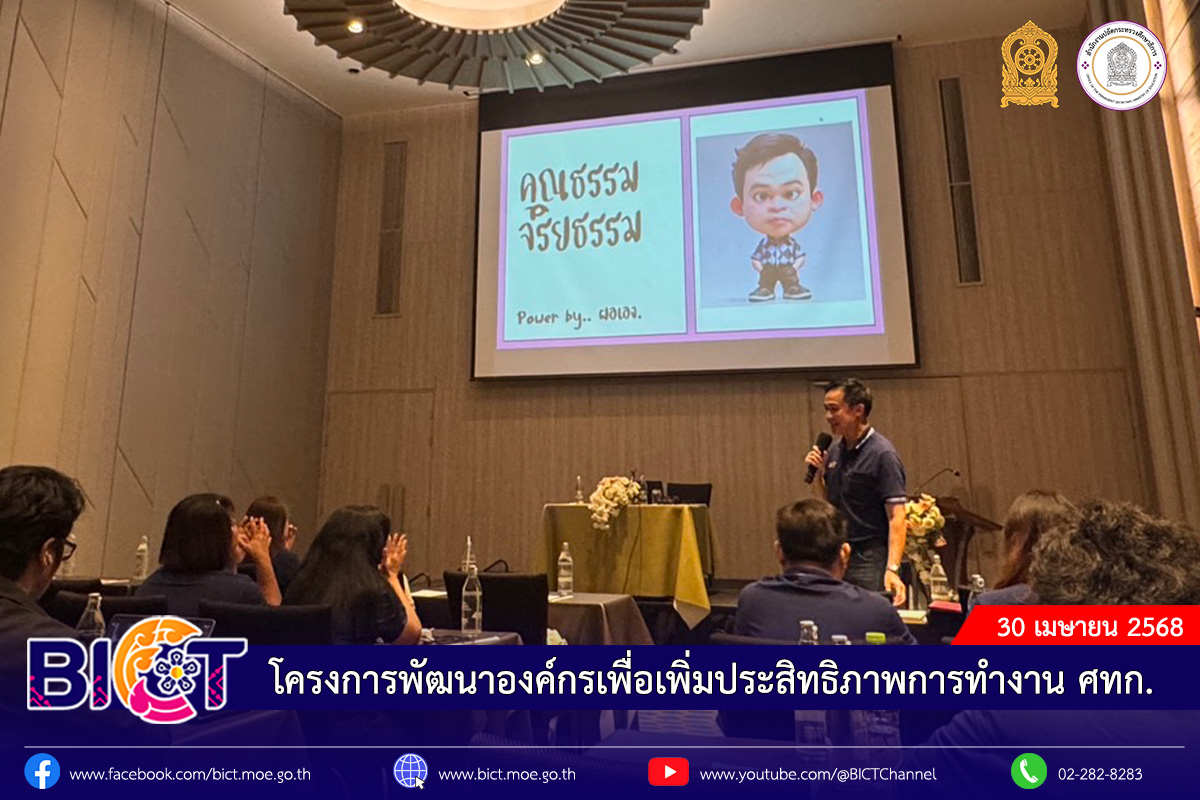การพัฒนารูปแบบการเรียนรู้เชิงประสบการณ์ร่วมกับเกมมิฟิเคชันแบบออนไลน์ ที่เสริมสร้างสมรรถนะความฉลาดทางดิจิทัลของนักเรียนชั้นประถมศึกษาตอนปลาย
41
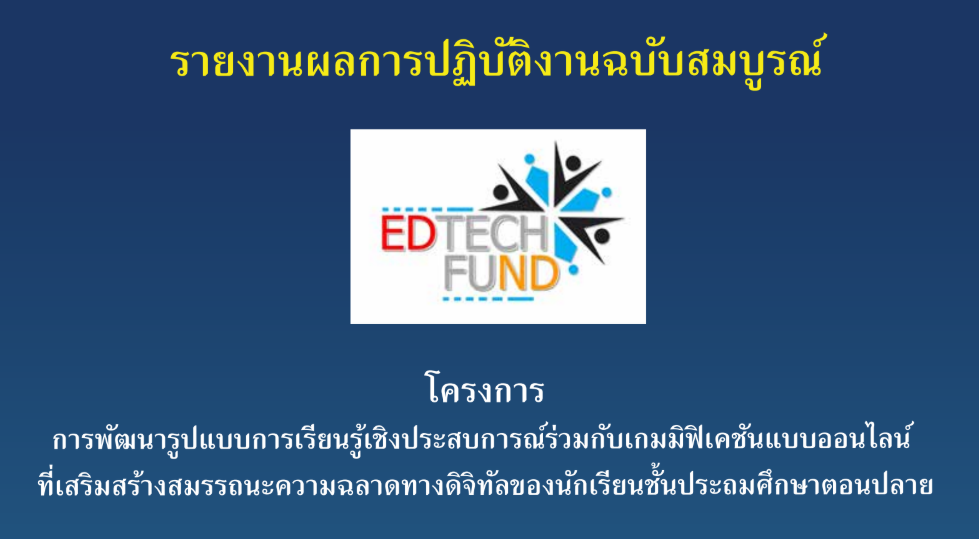
เลขที่สัญญา 2/2566
| Other Title: | การพัฒนารูปแบบการเรียนรู้เชิงประสบการณ์ร่วมกับเกมมิฟิเคชันแบบออนไลน์ ที่เสริมสร้างสมรรถนะความฉลาดทางดิจิทัลของนักเรียนชั้นประถมศึกษาตอนปลาย |
| Author: | วชิรพรรณ ทองวิจิตร |
| Date: | 2023 |
| Publisher: | กองทุนพัฒนาเทคโนโลยีเพื่อการศึกษา กระทรวงศึกษาธิการ |
| Abstract: | การวิจัยนี้เป็นการวิจัยและพัฒนา มีวัตถุประสงค์เพื่อศึกษาและพัฒนารูปแบบการเรียนรู้เชิงประสบการณ์ร่วมกับเกมมิฟิเคชันแบบออนไลน์ ที่เสริมสร้างสมรรถนะความฉลาดทางดิจิทัลของนักเรียนชั้นประถมศึกษาตอนปลาย ประเมินสมรรถนะความฉลาดทางดิจิทัลจากการเรียนด้วยรูปแบบการเรียนรู้ฯ รวมถึงศึกษาความคิดเห็นและกำหนดแนวทางการนำผลการวิจัยไปสู่กลุ่มผู้ที่มีส่วนเกี่ยวข้อง (stakeholder) กับรูปแบบการเรียนรู้ฯ แบ่งออกเป็น 3 ระยะ คือ 1) ศึกษาและพัฒนารูปแบบการเรียนรู้เชิงประสบการณ์ร่วมกับเกมมิฟิเคชันแบบออนไลน์ ที่เสริมสร้างสมรรถนะความฉลาดทางดิจิทัลของนักเรียนชั้นประถมศึกษาตอนปลาย 2) ประเมินสมรรถนะความฉลาดทางดิจิทัลจากการเรียนด้วยรูปแบบการเรียนรู้เชิงประสบการณ์ร่วมกับเกมมิฟิเคชันแบบออนไลน์ที่เสริมสร้างสมรรถนะความฉลาดทางดิจิทัลของนักเรียนชั้นประถมศึกษาตอนปลาย และ 3) ศึกษาความคิดเห็นและกำหนดแนวทางการนำผลการวิจัยไปสู่กลุ่มผู้ที่มีส่วนเกี่ยวข้อง (stakeholder) กับรูปแบบการเรียนรู้เชิงประสบการณ์ร่วมกับเกมมิฟิเคชันแบบออนไลน์ ที่เสริมสร้างสมรรถนะความฉลาดทางดิจิทัลของนักเรียนชั้นประถมศึกษาตอนปลาย กลุ่มตัวอย่างที่ใช้ในการวิจัย คือ นักเรียนชั้นประถมศึกษาตอนปลาย (ป.4-6) ปีการศึกษา 2564จากทั้ง 5 ภูมิภาค ได้แก่ ภาคเหนือ ภาคตะวันออกเฉียงเหนือ ภาคกลาง ภาคใต้ และกรุงเทพมหานคร ภูมิภาคละ 60 คน รวมทั้งสิ้น 300 คน เครื่องมือที่ใช้ในการวิจัย คือ แบบสอบถามสภาพการจัดการเรียนการสอน แผนการจัดการเรียนรู้ คู่มือการใช้งานเว็บไซต์ สื่อประกอบบทเรียน แบบทดสอบสมรรถนะความฉลาดทางดิจิทัล แบบประเมินความพึงพอใจ แบบสัมภาษณ์ครูและนักเรียน รูปแบบการเรียนรู้และแบบประเมินคุณภาพ แบบสอบถามความคิดเห็นของผู้ที่มีส่วนเกี่ยวข้องกับรูปแบบการเรียนรู้ สถิติที่ใช้ในการวิจัย คือ ค่าร้อยละ ค่าเฉลี่ยเลขคณิต ค่าส่วนเบี่ยงเบนมาตรฐาน และค่าเปรียบเทียบความแตกต่างของค่าเฉลี่ยระหว่าง 2 กลุ่ม (Independent Sample t-test) ผลการวิจัย พบว่า 1. ผลการวิเคราะห์สภาพการจัดการเรียนการสอนเรื่องความฉลาดทางดิจิทัลของนักเรียนชั้นประถมศึกษาตอนปลาย สามารถนำไปใช้เป็นแนวทางในการพัฒนารูปแบบการจัดการเรียนการสอนที่เหมาะสมและสอดคล้องกับสภาพปัญหาตามความจริง และสามารถนำไปต่อยอดเป็นการพัฒนานวัตกรรมทางการศึกษาในด้านอื่น ๆ ต่อไป 2. รูปแบบการเรียนรู้เชิงประสบการณ์ร่วมกับเกมมิฟิเคชันแบบออนไลน์ ที่เสริมสร้างสมรรถนะความฉลาดทางดิจิทัลของนักเรียนชั้นประถมศึกษาตอนปลาย ประกอบด้วย 4 ขั้นตอน ได้แก่ การได้รับประสบการณ์ การสะท้อนคิด การคิด และการปฏิบัติ มีผลการประเมินคุณภาพจากผู้เชี่ยวชาญอยู่ในระดับมาก ครูผู้สอนสามารถนำไปประยุกต์ใช้และเป็นแนวทางในการจัดกิจกรรมการเรียนการสอนได้ 3. ผลการประเมินสมรรถนะความฉลาดทางดิจิทัลด้วยรูปแบบการเรียนรู้เชิงประสบการณ์ร่วมกับเกมมิฟิเคชันแบบออนไลน์ ที่เสริมสร้างสมรรถนะความฉลาดทางดิจิทัลของนักเรียนชั้นประถมศึกษาตอนปลาย พบว่า กลุ่มทดลองที่เรียนด้วยรูปแบบการเรียนรู้ฯ มีผลการทดสอบสมรรถนะความฉลาดทางดิจิทัลหลังเรียนสูงกว่ากลุ่มควบคุม โดยมีความแตกต่างกันอย่างมีนัยสำคัญทางสถิติที่ 0.05 4. ผลสรุปความคิดเห็นจากผู้มีส่วนเกี่ยวข้องกับรูปแบบการเรียนรู้เชิงประสบการณ์ร่วมกับเกมมิฟิเคชันแบบออนไลน์ ที่เสริมสร้างสมรรถนะความฉลาดทางดิจิทัลของนักเรียนชั้นประถมศึกษาตอนปลาย จากทั้ง 3 กลุ่ม ได้แก่ ผู้บริหารโรงเรียน นักวิชาการ และครูได้ประเมินคุณภาพให้อยู่ในระดับมากที่สุด และแสดงความคิดเห็นว่ารูปแบบการเรียนรู้ฯ มีความสอดคล้องกับความสนใจของนักเรียน ทันสมัยเหมาะสมกับยุคสมัย และสร้างแรงจูงใจในการเรียนรู้ให้กับผู้เรียน สามารถนำไปต่อยอดและขยายผลในวงกว้างได้ คำสำคัญ: การเรียนรู้เชิงประสบการณ์ เกมมิฟิเคชัน การเรียนออนไลน์ ความฉลาดทางดิจิทัล This research is research and development. The objective is to study and Modelof Experiential Learning in Gamification through Online course to enhance upper elementary school students’ Digital Intelligence Quotient Competency, Evaluate digital intelligence competency from learning with model. Including studying opinions and setting guidelines for bringing research results to relevant groups of people. (stakeholder) with learning model are divided into 3 phases: 1) Study and development model of Experiential Learning in Gamification through Online course to enhance upper elementary school students’ Digital Intelligence Quotient Competency 2) Evaluates digital intelligence competencies from learning using learning model. 3) Study opinions and determine guidelines for bringing research results to relevant groups of people. (stakeholder) with learning model. The sample group used in the research was upper primary school students (Grades 4-6) in the academic year 2021 from all 5 regions: the Northern, Northeastern, Central, Southern and Bangkok regions, 60 people per region, totaling 300 people. The tools used in the research was a questionnaire on teaching and learning conditions, learning management plan, website manual, lesson materials, digital intelligence competency test, satisfaction assessment form and interview form of teacher and student, learning model and quality assessments questionnaire, opinions of those involved in learning styles statistics used in research are percentages, arithmetic mean values standard deviation and comparison of the mean differences between the 2 groups (Independent Sample t-test) The research results found that 1. Results of the analysis of teaching and learning conditions regarding digital intelligence for upper primary school students. Can be used as a guideline for developing teaching and learning models that are appropriate and consistent with the actual problem conditions. and can be further developed to develop educational innovations in other areas. 2. Model of Experiential Learning in Gamification through Online course to enhanceupper elementary school students’ Digital Intelligence Quotient Competency, consisting of 4 steps: experiencing, reflecting, thinking, and acting. The quality assessment results from experts are at a high level. Teachers can apply this and use it as a guideline for organizing teaching and learning activities. 3. Results of the digital intelligence competency assessment using Model of Experiential Learning in Gamification through Online course to enhance upper elementary school students’ Digital Intelligence Quotient Competency. It was found that the experimental group studied with the learning model. They had higher results on the digital intelligence competency test after studying than the control group. The difference is statistically significant at 0.05. 4. Summary of opinions from those involved in the Model of Experiential Learningin Gamification through Online course to enhance upper elementary school students’ Digital Intelligence Quotient Competency from all 3 groups, school administrators, academics, and teachers, assessed the quality to be at the highest level and express opinions that the learning style It is consistent with the interests of the students, modern and suitable for the era and create learning motivation for students can be further developed and expanded to a wider extent. Keywords: Experiential Learning Gamification Online Learning Digital Intelligence Quotient |
| เจ้าของลิขสิทธิ์: | กองทุนพัฒนาเทคโนโลยีเพื่อการศึกษา กระทรวงศึกษาธิการ |
| ดู/เปิด: |
ข่าวสารที่เกี่ยวข้อง
การพัฒนาสื่อสร้างสารภาษาไทยเพื่อการบริการสำหรับผู้บกพร่องทางการได้ยิน
17 มีนาคม 2568
21
ครั้ง
การพัฒนาแพลตฟอร์มแบบฝึกทักษะอัจฉริยะเพื่อส่งเสริมการเรียนรู้ในยุคปกติวิถีใหม่
17 มีนาคม 2568
20
ครั้ง
ข่าวสารล่าสุด
ร่วมแสดงความยินดีกับ ผอ.ศทก. เนื่องในโอกาสดำรงตำแหน่ง ที่ปรึกษาด้านเทคโนฯ
16 พฤษภาคม 2568
15
ครั้ง
ข้อมูลเชิงสถิติเรื่องร้องเรียนการทุจริตและประพฤติมิชอบประจำปี 2567
13 พฤษภาคม 2568
18
ครั้ง
ข้อมูลสถิติเชิงให้บริการ 2567
13 พฤษภาคม 2568
19
ครั้ง
โครงการพัฒนาองค์กรเพื่อเพิ่มประสิทธิภาพการทำงาน ศทก.
30 เมษายน 2568
33
ครั้ง
